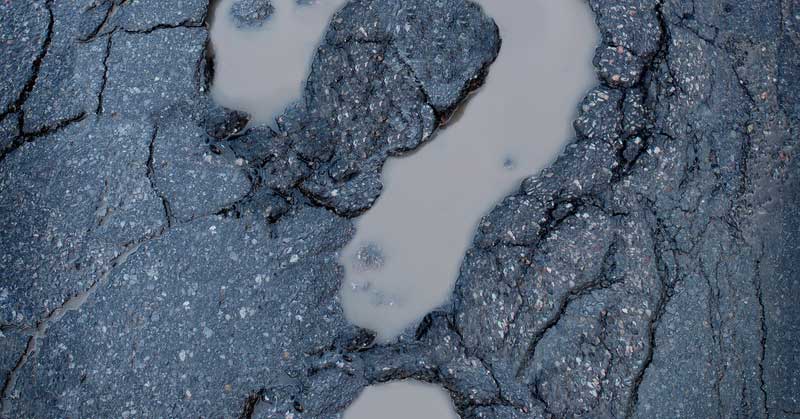Nothing lasts forever. This is true even for an extremely durable material like asphalt. Depending on several variables – like the level of use, what kind of a climate you live in, and whether or not the surface has been properly maintained – asphalt typically lasts for 20 years or even longer. But at some point, it will inevitably need to be replaced. While it’s true that only a professional paving contractor can tell you with any certainty whether or not you need entirely new pavement, there are some signs that may indicate you do. Here’s how you can tell when it’s time for new asphalt:
- Cracks: Any pavement can develop cracks, but if your asphalt has many tiny cracks that resemble the skin of an alligator, it may be a sign that it’s time to replace the surface. These “alligator cracks” typically indicate that the sublayer of your asphalt is damaged. This type of structural damage usually requires replacement of the pavement.
- Puddles: If you notice areas of standing water on your asphalt surface, it means that there is inadequate drainage. When the surface develops potholes and severe cracks, it can result in standing water. Puddles also form in depressed areas of the surface, which is usually an indication that the foundation of the pavement is damaged. Either way, standing water is often a sign that the pavement needs to be replaced.
- Potholes: While it’s true that the appearance of one or two potholes does not necessarily mean you need new pavement, if your asphalt is riddled with potholes, it is typically an indicator that the sublayer is damaged. And that means that the pavement needs to be replaced. When you notice a pothole, it’s important to call your local paving contractor and have it repaired right away. Potholes provide an easy way for water to seep underneath the surface, and that can damage the foundation of the pavement.
- Faded surface: It’s natural for black asphalt to fade as it’s exposed to the UV rays of the sun. But if the surface has not been periodically seal coated to protect it against the elements, faded asphalt could be a sign of more serious damage. Sun, like water, weakens asphalt, making it susceptible to damage.
For more information about signs that your asphalt is damaged, and to find out for sure whether or not it needs to be replaced completely, contact a local paving contractor.
